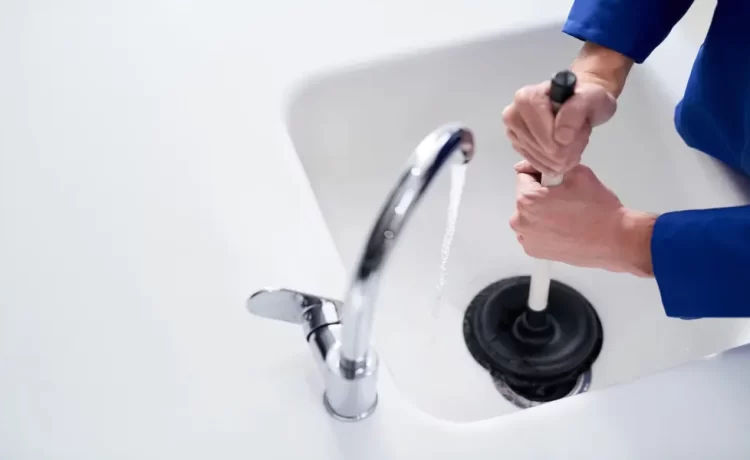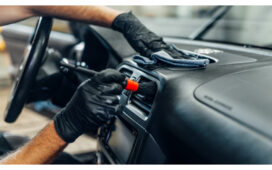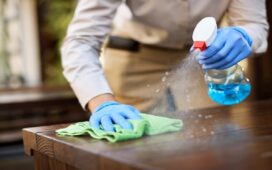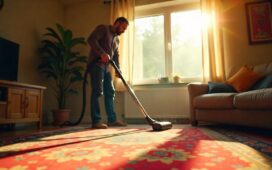Maintaining a clean and functional drain is essential for a healthy and working home plumbing system. Ignoring drain maintenance can result in clogs, unpleasant odors, and costly repairs. This comprehensive guide provides homeowners with effective strategies for drain cleaning and maintenance, for a reliable and efficient plumbing system.
Understanding Common Causes of Clogged Drains
Identifying the underlying causes behind drain blockages is the first step towards prevention and effective cleaning.
- Hair Accumulation: In bathroom sinks and showers, hair can bind with soap scum, creating stubborn blockages.
- Grease and Fat Buildup: In kitchen sinks, pouring cooking oils and fats down the drain can lead to solidified blockages as they cool.
- Foreign objects: Items like food particles, sanitary products, and wipes can clog drains, especially when they don’t dispose easily.
- Mineral Deposits: Hard water can leave mineral residues that accumulate over tim, narrowing pipes and reducing flow.
Preventative Measures for Drain Maintenance
Implementing preventive strategies can significantly reduce the chances of clogs and maintain the drain to function properly.
- Use Drain Screens: Installing drain screens can trap hair, food particles, and other debris, preventing them from entering the plumbing services system.
- Proper disposal of Grease: Avoid pouring fats, oils, and grease down the sink. Instead, collect them in a storage box and dispose of them in the trash.
- Proper Flushing: Only flush human waste and toilet paper. Dispose of other waste such as wipes and sanitary napkins in the trash to prevent toilet clogs.
- Regular Hot Water Flushing: Pouring hot water down drains weekly can help dissolve minor buildups of grease and soap scum.
DIY Drain Cleaning Methods
For minor clogs and routine maintenance, consider the following do-it-yourself approaches:
- Baking Soda and Vinegar Solution: Pour half a cup of baking soda down the drain, followed by half a cup of white vinegar. Cover the drain and keep the mixture sit for 15 minutes. Finish by flushing with boiling water. This natural remedy helps eliminate odors and organic buildup.
- Plunger Usage: A plunger can effectively dislodge minor clogs in sinks and toilets by creating suction to break up the blockage.
- Drain Snake (Auger): A drain snake can reach deeper clogs that are not accessible with a plunger, allowing you to manually remove or break down the blocked drain.
When to avoid Chemical Drain Cleaners?
When chemical drain cleaners are easily available, they come with certain risks:
- Pipe Damage: Harsh chemicals can corrode pipes, especially older or PVC plumbing. leading to leaks.
- Health Hazards: Chemical cleaners can cause skin irritation and produce harmful fumes.
- Environmental Concerns: These substances can harm the environment when they enter the water supply.
It’s advisable to use natural cleaning methods or consult a professional plumber for major issues.
Professional Drain Cleaning Services
For severe or recurring clogs, professional expertise is required. .They use several techniques to find out the core issue, such as;
- Hydro Jetting: This technique uses high-pressure water to thoroughly clean pipe interiors, removing stubborn blockages and accumulated dust.
- Video Inspection: With the use of cameras, plumbers inspect the inside of pipes, to accurately identify the location and nature of clogs.
- Regular Maintenance Services: Many plumbing services offer routine maintenance to keep your drains clear and functioning properly.
Preventing Future Clogs
Maintaining those clogs are key to preventing drain issues;
- Educate Household Members: Make sure that everyone in the home understands what can and cannot be disposed of in sinks and toilets.
- Routine Cleaning: Incorporate regular drain cleaning into your household chores to prevent buildup.
- Monitor Water Pressure: High water pressure can strain pipes, while low pressure may indicate a blockage. Maintain appropriate water pressure levels.
Conclusion
Regular drainage cleaning and maintenance is essential for a healthy plumbing system. By understanding common causes of clogs, implementing preventive measures, and knowing when to seek professional help, you can avoid the inconvenience and expense of serious plumbing problems. Include these things into your home maintenance routine to ensure free-flowing drains and a clean working plumbing system.







